
PUMPA - SMART LEARNING
எங்கள் ஆசிரியர்களுடன் 1-ஆன்-1 ஆலோசனை நேரத்தைப் பெறுங்கள். டாப்பர் ஆவதற்கு நாங்கள் பயிற்சி அளிப்போம்
Book Free DemoThe lesson 'Black Aeroplane' revolves around an incident that happens in the life of a pilot. Have you ever travelled in an aeroplane at night and wondered how pilots navigate through the darkness? The incident that is described in the lesson happens at night as well. But the pilot faces an unfortunate series of events. The lesson also unravels how he manages to come out of the crisis.
The speaker of the lesson is a pilot and remains unnamed throughout. He narrated the incident when he was on one of his usual flight journeys. It was nighttime, and the pilot was flying back to his home after a tiresome journey of taking people across countries. Although, as passengers it is difficult to understand the technicalities of flying in the dark, there are multiple nuances that are involved in flying an aeroplane. During the day, the pilots use several ground-based landmarks to navigate their way through the sky. Apart from this, there is a flight controller's office stationed at every airport. They are usually stationed in air traffic control and control towers. They use radar to monitor the weather, altitude etc., and give commands to guide the pilot using a radio or wireless.
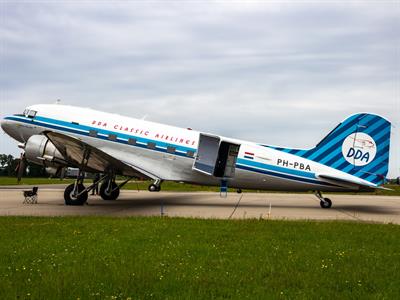
Dakota plane*
On the day of the flight, the pilot sees the moon come up in the sky in the east. He also sees the stars shining brightly in the clear sky. When the weather is moody, stars generally do not show up. This shows that the weather was initially fine. Most importantly, there were no clouds in the sky. Usually, when there is a clear sky, it means that there is no air pressure, and there is less chance of any such thing as a storm. Not anticipating anything dangerous, the pilot is happy about flying high above in the air when the entire country is sleeping. It was \(1.30\) in the morning. He was flying a Dakota aeroplane, indicating that it was British. He was currently crossing France to reach England, his homeplace. Since he was a pilot, he hardly stayed at home with his family. So this time, he was looking forward to finally reaching England and spending time with his family.
When one is hopeful about something, they tend to finish their work quicker than expected. They cannot wait for the work to get over and the good times to start. When we know that we are going out in the evening, we cannot wait for the class to get over. Time seems to be infinite in moments like these. Similarly, the poet cannot wait to enjoy his holidays with his family in England. He, therefore, decides to do every other routine before the landing as soon as possible.
Since he was travelling over Paris, the most beautiful city in France, he had to get in touch with the Flight controller in Paris. Unlike roadways, navigating one's way out in the sky is not easy. As he entered Paris, he saw bright lights from the city that lay in front of him. He looks over the nose of the aeroplane, meaning through the front screen, out in the open. He calls Paris Control to inform them of his arrival and for further guidance. When flights inform them of their arrival, they do not give out the pilot's name or other details. Each flight has a number and code with which it is identified. He informs them that Dakota DS 088 has entered their city zone and that he is heading to England.
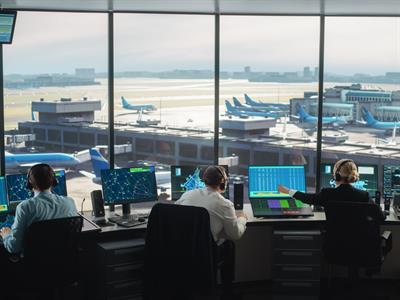
Flight control room
It is important for the controllers to respond immediately as it is impossible for a flight to just wait in the sky. The controller in the Paris station looks over the air traffic and weather and guides the pilot to turn twelve degrees left to reach safely. The pilot cannot just randomly follow orders. He will have to check his own compass and other facilities, confirm and take the route. He, therefore, checks with his compass, which also asks him to take twelve degrees left. He uses his second and last fuel tank to take this shift. He anticipates a good English breakfast as soon as he reaches home. There was nothing that could go wrong after this.
The pilot takes twelve degrees left as instructed by the controller in Paris. Aeroplane wings are designed in such a way that it makes air move faster over their wings. This helps them to move around \(465 - 575\) mph on average. The weather was clear, and the pilot had nothing to worry. He, therefore, moves fast as he has the urge to reach home faster as well. He moves on and travels around \(150\) km away from Paris. He is even more hopeful as he is just a few hours behind in enjoying a hearty breakfast with his family.
Weather conditions can change as one moves from one place to the other. Before entering Paris, the sky was clear, and the pilot even saw the stars. He was not expecting any hurdles on the way and even thought that it was an easy flight. But as soon as he moved a few kilometres away from Paris, there was a hurdle waiting for him. There was a storm cloud waiting for him. Thunder clouds are also called Cumulonimbus. They look like an anvil shape, which points in the direction the storm is moving. They were huge and stood there before the pilot like a huge black mountain.
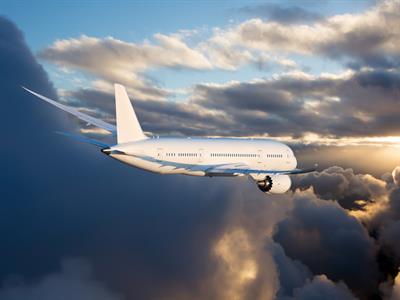
Flight amidst storm clouds
If the pilot had to take a different direction and move away from the cloud towards the north or south, he would require more fuel to cover the extra distance. But he only had enough fuel to reach England by moving straight. The clouds were so massive that he could not move above them as well. His only option was to move back to Paris, which was only 150 km away, and the fuel would last. He would have to wait for a day or two before starting again to England. But he wanted to go home desperately and have breakfast as he had set his mind to. Therefore he decided to take the risk of entering the storm cloud.
The pilot decides to take the risk and enter the storm cloud, hoping that he can find a way within it and get through it. Sometimes in life, it is important to know when to take risks and when to be patient. Certain things can be tempting, like breakfast and getting a day off for the pilot. But one has to choose the best option at times like these. But unfortunately, the pilot took the wrong call.
The plane gets stuck inside the cloud, and everything is dark inside as it was a storm cloud. When there is a storm, it is difficult even to drive a car, as one cannot control nature's wrath. Similarly, it was difficult for the pilot to see anything beyond the cloud. The aeroplane was already old and used, and hence shakes and twists in the turbulence created. All aeroplanes have emergency technicalities installed in case of emergency. A pilot has a compass to show the right direction he has to take. Unlike roadways, it is difficult to find one's way out in the sky. But because of the storm, the compass had stopped working. The pilot was not expecting this. All the other instruments that would help one to navigate also stopped working.
The pilot's last retort was to call the flight controller in Paris to help him figure out the way. He had taken their help last time and therefore hoped they would be of some help. But to his bad luck, the radio stopped working. The storm would make it difficult for any transmissions to work. As the pilot felt quite lost, he found another aeroplane in the black clouds next to him. The other flight had also lost connectivity, and hence there were no lights on the wings of it. He saw the pilot's face turn towards him. This was a relief to see another human being, as he had thought he had been stuck alone in the sky. The pilot of the black aeroplane signalled to him to follow him. The pilot was more than relieved as there was another person trying to help him out. This gave him hope.
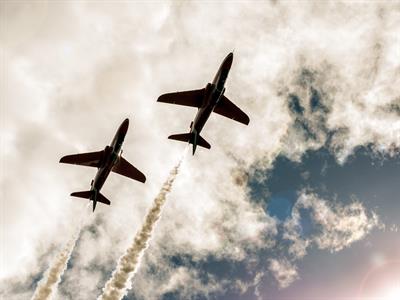
The pilot followed the other aeroplane
The pilot was stuck inside a storm cloud. He had not expected it to be so dangerous. It is difficult to be stuck in a place where one does not get help easily and cannot find human presence. It was a relief for the pilot to find a companion. The pilot from the black aeroplane provided hope and guided him. He made sure that he flew north in front of the Dakota plane so that the pilot could follow him out. The pilot follows him like an obedient child, as it is his only option.
Although the cloud appeared just as a barrier in front of them, ramming into it made him realise that it was no easy task to get out of it. In spite of following the black aeroplane for around half hour, he did not reach out. He was getting even tenser as he only had enough fuel to last for five or ten minutes. He was unsure of how long it would last. If the fuel gets over, he is in more danger. He started to feel scared again, as even if he found a way out, he could not move forward without fuel. When the pilot had multiple anxieties, he saw the other pilot swoop down with his flight. The storm was still at its peak, but the pilot followed him with all hopes. All of a sudden, he finally found himself coming out of the clouds. He found two straight lines of light right in front of him. It was a runway. A runway is a long road from which a flight takes off and lands. He had finally reached the airport safely.
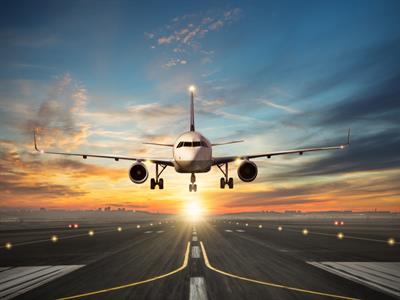
Flight landing in runway
This was one of the scariest moments of the pilot's life, and if not the guidance from the other pilot, he would have faced a threat to his life. He wanted to thank him with all his heart as it was a great gesture to help someone in trouble. But he couldn't find him anywhere once he landed. There was nothing in front of him as both the pilot and the black aeroplane were no longer there. All control rooms in the airport have a detailed list of all flights crossing the city. This is for them to guide the flights navigate through. Only if the control room knows the location and destination of the flights will they be able to guide them. The pilot, therefore, asks the lady in the control room about the whereabouts of the other flight. He was shocked when she replied that she could not see any other flight on the radar, especially in the storm. The pilot is awestruck, wondering who had saved him and how the events unfolded.
Reference:
Dakota plane*: VanderWolf Images Shutterstock